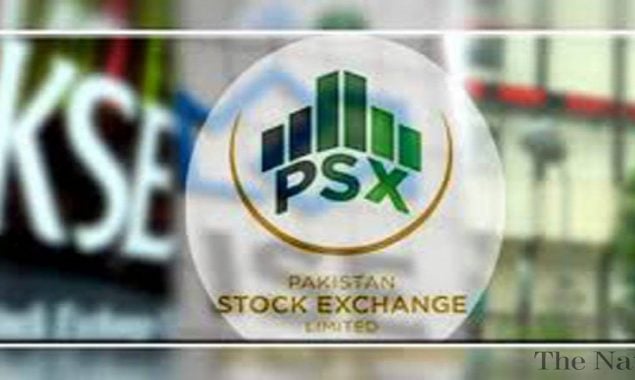
KARACHI: The benchmark KSE-100 Index posted a positive return of 1.7 per cent in January, owing to aggressive foreign buying in technology scrips and the progress on the International Monetary Fund (IMF) programme.
The Pakistan Stock Exchange gained 779 points on a month-on-month basis to close at 45,375 points in January and remained one of the best performing markets in the region.
“The bullish momentum in the first-half of the month was mainly attributed to aggressive foreign buying in technology scrips alongside swift approval of the Finance Supplementary Act in the National Assembly, which changed the investors’ sentiment, despite high trade deficit, higher-than-expected Consumer Price Index (CPI) figures and delay in the IMF meeting,” a research report by Arif Habib Limited said.
“However, the anticipation of a rate hike in the monetary policy, as well as another spike in the global oil prices, turned bulls into bears mid-month,” it added.
The forward guidance of the State Bank of Pakistan (SBP) suggested status quo in the near-term and provided some respite to the market.
The rebased and revised GDP figure of 5.57 per cent for the fiscal year 2021 against the earlier announced 3.9 per cent, also lifted the sentiments of the market participants.
In the region, six stock markets of the 10 posted losses during the month, while four; Sri Lanka, Philippines, Pakistan and Indonesia, posted a positive return.
The market is expected to perform positively, as Pakistan has met all the IMF conditions for the revival of the $6 billion Extended Fund Facility (EFF) programme with a meeting scheduled in February 2022.
“Further, heightened foreign activity and inflows at the bourse, especially in the technology sector, are expected due to potential re-rating.”
“Overall optimism regarding the upcoming corporate results season and scrips currently being traded at attractive valuations is expected to boost the sentiment,” the report noted.
However, rising international commodity prices, especially crude oil, which is trading at a six-year high price and palm oil trading at a 10-year high, are expected to build pressure on the trade deficit, as Pakistan relies heavily on the import of palm oil and petroleum products to meet its domestic needs, whereas rising Omicron cases in the country may keep the local bourse in check.
Read More News On
Catch all the Business News, Breaking News Event and Latest News Updates on The BOL News
Download The BOL News App to get the Daily News Update & Follow us on Google News.




